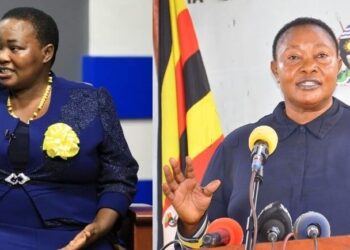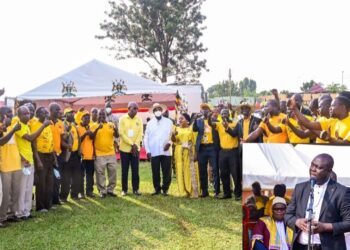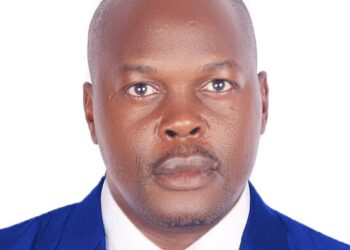By Dr Ian Clarke
Recently I read a book about Uganda by a gentleman called Douglas Cruickshank. The book consists of short essays, which he wrote when he was living in a village in the Rwenzori foothills. It is a large coffee table book with beautiful pictures, but unlike most books of this type the photographs focus on people and everyday life in Uganda. There are photos of kids, of weddings, of village life, of people walking along a road, of village women, or people simply staring back at the camera. The book is aptly titled ‘Somehow’.
I met the author in person and got to know something of his story and how his love affair with Uganda developed. In his previous life he worked as a magazine editor and photographer in San Francisco, living an apparently successful life, but then he decided to give it all up, which is not something most people do.
At that time he did not really know what he would do in the future, but he started to unclutter his life by giving away his possessions. Over a period of time he got rid of all his worldly possessions including his house and his car. He then decided to apply to the ‘Peace Corps’ to do volunteer work. Peace Corp is an American organization that finds positions for volunteers in developing countries. Since they are volunteers they don’t get paid much and have to learn to live like the local people. The Peace Corps is very selective about who they send, because they know that some Americans are just not suited to live in basic conditions.
Douglas was sent to Uganda, though he thought he was going to Rwanda, so when he arrived he had little knowledge about Uganda, having prepared for Rwanda. Essentially he had no preconceptions and didn’t know what to expect. He first stayed with a Ugandan family outside Kampala to get used to the country and over the years he has developed a deep relationship with all the members of this family. He was then posted to work at a coffee cooperative in the Rwenzori Hills. While he was there he used his skills to apply for grants to support the cooperative and was very successful in bringing in financial support. His marketing skills also resulted in getting export orders, which gave the cooperative much higher prices for their coffee.
But this is not what the book is about; it is simply observations about life in Uganda. He describes a journey on ‘Link’ Bus from Kasese to Kampala; he describes walking up the hills to the local village church, his ‘commute’ to work through yards and plantations to his small office at the cooperative. He recounts events at introductions and weddings he attended, with all the drama, and the loud music, and fast talking Master of Ceremonies.
He tells how he struck up a friendship with the local carpenter, who then suddenly died at the age of thirty of kidney failure. He paints a picture of attending the funeral where they sang hymns, as he heard the grave-diggers’ shovels dig the grave. His essays are snapshots of life in a rural community, with some glimpses into the city.
What I liked about this book was its portrayal of the authenticity and the innocence that still exists in parts of Uganda. Douglas lived in the village for more than two years. He had a simple room; he walked across the courtyard to have a shower with a jerry-can of water; he got to know his neighbours; he was part of the community. The village got used to him being there and accepted him as part of them.
The sense of community comes across strongly and for me brought back memories of living in Kiwoko, and the interaction I had there with that community. Now, living in Kampala in a compound with its walls and security guards, it is much harder to feel any sense of community. Ugandans are an open people, they take in foreigners and strangers, and quickly weigh if the stranger is an open person with a good heart. Douglas was such a man who was accepted for who he was. Sometimes we forget the good in many ordinary Ugandans.
They struggle to make ends meet, but they are still ready to share a meal. We see the bad and the ugly of our own society, but we miss the good. Or perhaps we are losing this sense of community because of our modern urban way of living, where we no longer even know who our neighbour is.
Do you have a story in your community or an opinion to share with us: Email us at editorial@watchdoguganda.com











